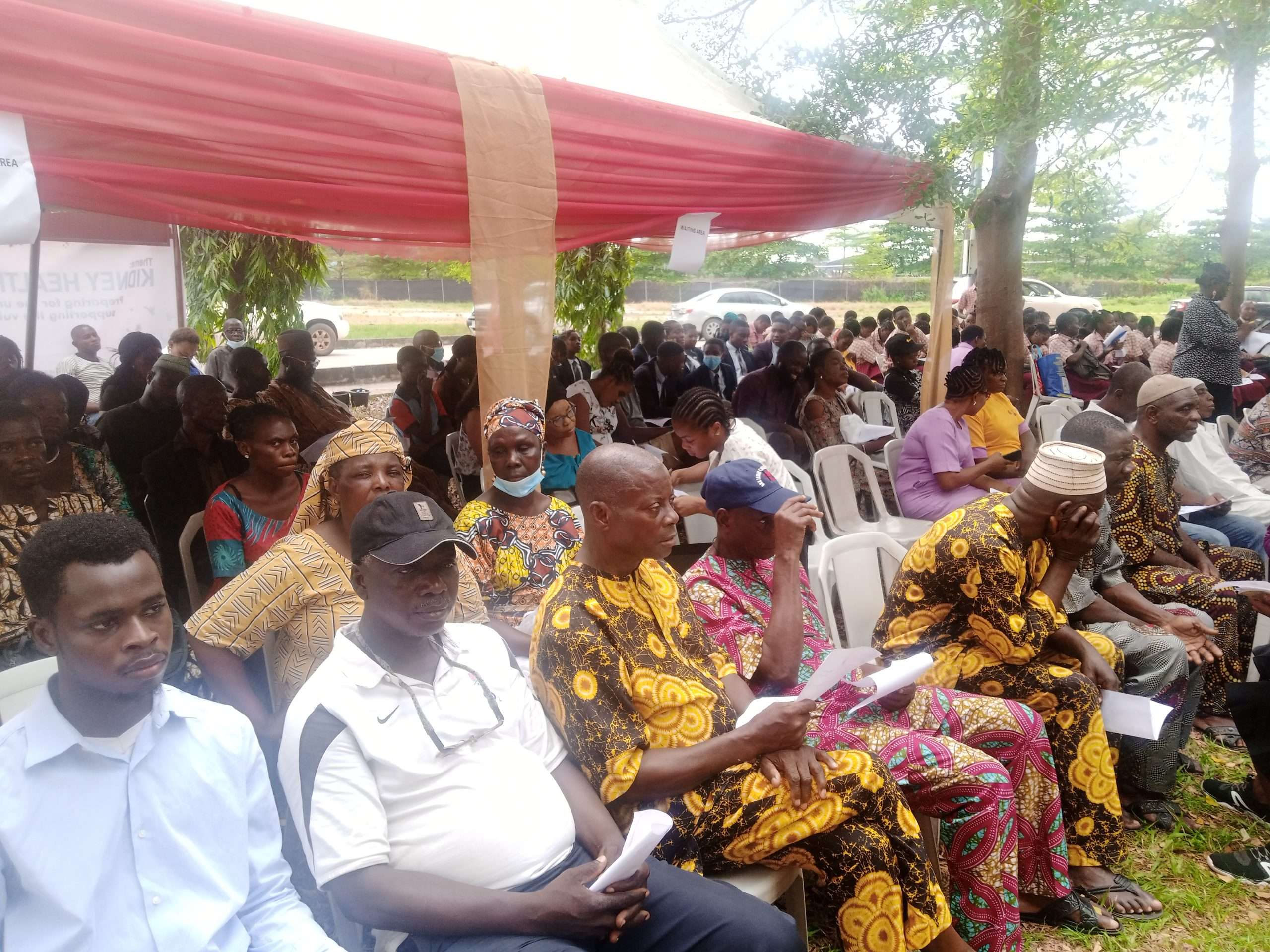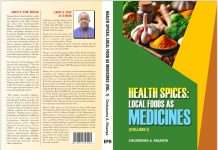
Kidney specialists, including Professor Olugbenga Awobusuyi, Dr Bolu Ojuroye and Dr Abudulwasiu Adeniyi Busari, have drawn the attention of Nigerians to effective means of preventing kidney diseases and maintaining healthy kidney functions.
The nephrologists who spoke at the kidney screening programme, organised by the Gbagada General Hospital recently, identified factors that make Nigerians vulnerable to kidney failure such as untreated hypertension, diabetes, smoking, drug abuse and misuse, as they advised participants to steer clear of these practices.
Dr Ojuroye, director, Clinical Service and Training, Gbagada General Hospital, while addressing the people, condemned the practice of mixing herbal concoctions with other local herbs that claim to have NAFDAC registration numbers, which end up being poisonous, leading to kidney diseases.
He urged citizens to desist from self medication of both local and orthodox medicines, as it has severe consequences on their internal organs, especially the kidney.
Speaking with Pharmanewsonline in an exclusive interview at the programme, a Nephrologist, Professor Olugbenga Awobusuyi, said prevention is better than cure, as such, advised Nigerians to abstain from smoking, excessive drinking of alcohol and use of recreational drugs, in order to maintain healthy kidneys.
While noting that many kidney diseases are asymptomatic, he stated that kidney disease can cause serious health problems such as loss of kidney function, renal failure and even death.
According to him, “Given the devastating impact of chronic kidney disease on the Nigerian population, various measures must be taken to prevent and reduce the number of cases. The first line of defense against kidney diseases is education and awareness. There is also a need for comprehensive primary healthcare in Nigeria, and another important factor in the prevention of kidney diseases is access to clean water and sanitation.
“It is important to also note that preventing the spread of STDs is an important factor in the prevention of kidney disease in Nigeria. STDs such as chlamydia and HIV have been linked to kidney diseases, and thus, ensuring the safe and timely treatment of all STDs is essential if the spread of kidney diseases is to be curtailed”.
Speaking on the theme of the event tagged: “Kidney health for all – preparing for the unexpected, supporting the vulnerable”, a resident doctor at the hospital, Dr Abudulwasiu Adeniyi Busari, explained the main function of the kidneys is to filter waste out of the body, as well as produce certain hormones such as calcitriol, which helps the body absorb calcium, and erythropoietin.
He explained that kidney failure, also known as renal failure, occurs when the kidneys can no longer filter the blood properly or maintain electrolyte balance.
“Kidney failure can be caused by many different things, including diseases, lifestyle choices, and genetic factors. Diseases such as diabetes and high blood pressure can cause damage to the kidneys over time, leading to reduced kidney function and eventually, kidney failure.
“Some genetic disorders such as polycystic kidney disease can cause kidney failure over time if left untreated”, he asserted.
In her lecture titled ‘Healthy diet towards preventing kidney diseases,’ Dietician Oluwatoyin Adele, who also works at the Gbagada General Hospital, said eating a balanced diet and maintaining a healthy lifestyle can help prevent certain illnesses and diseases, including kidney diseases.
She maintained that a balanced diet that is low in sodium and saturated fats and high in fruit, vegetables and whole grains can reduce the risk of developing kidney diseases.
According to her, “Consumption of sugary beverages, excessive salt/bouillon cubes, and canned foods, all contribute to an increase in blood pressure, which can be damaging to the kidneys. While these items are enjoyable to eat, many people are unaware of the extra strain they put on the kidneys.
“It is important to establish the practice of drinking blended fruits and vegetables in place of bottled drinks. Parents should begin introducing their kids to nutritious foods such as okra, ugwu, shoko, efinrin, ewedu, oziza, utazi, ewuro, garden egg, kale, cucumber, carrot, and cabbage at an early age.
She further highlighted the importance of cutting down on the consumption of takeout, particularly of unhealthy foods. This can lead to high blood pressure and heart disease, which can ultimately damage the kidneys.
One of the beneficiaries of the free medical screening, Miss Sarah Awofeso, who spoke with Pharmanewsonline at the programme, expressed her gratitude to the management of Gbagada General Hospital for conducting the screening and the health education, as she was unaware of the types of foods she must avoid in other to keep her kidneys healthy prior to the programme.
Awofeso disclosed her determination to follow-up on the diagnosis given to her as well as adhere to the lectures, in order to maintain a healthy kidney.










